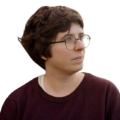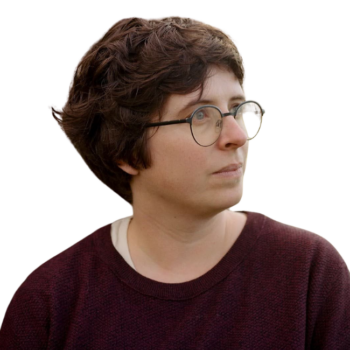Session 1: To Be Short with You – Introduction to the form
What is the appeal of a short story for you as a reader? Is the pleasure of reading a short story that of a ‘fleeting encounter’, a ‘short, sharp, shock’, ‘instant gratification’ or of a moment of recognition? All the above? What makes short fiction? What do we do when fiction intersects other forms, such as poetry, autofiction, typography, illustration and maps? This session will study both traditional forms for the short story and new, experimental approaches, exploring the limits of what language and writing can do.
There will be a group Zoom call with your tutor.
Session 2: Doing Impressions – Voice, character and form
What makes your voice unique? What is originality or authenticity of voice? This session will explore intention and tone within your authorial palette, and how language is used to hypnotise the reader. You will discover the possibility of a sentence, use imagery with precision and navigate dialoge in compact writing. Who is holding your story and where are you?
Session 3: Ways of Seeing
Explore the short story as the ‘art of the glimpse’: what do we see, and what do we miss?
Dive into techniques on how to guide readers into your world. You will work on observation techniques – the tactile and the body – as a way to capture a moment, sentiment and atmosphere. You will work with autobiographical material to take the familiar and make it strange. Play with expectations through the lens of horror, fable, comedy, dystopian and speculative conventions. Learn to answer the question, ‘Am I allowed to do that?’ Give yourself permission to write anything in any way.
There will be a group Zoom with your tutor where you can ask questions about your writing.
Session 4: Ways of Telling
Delve into vernacular writing. How do you pursue and crystallise the realities of a world? What is the difference between replicating and dramatising? Explore the perils of stereotypes but reliability of archetypes. How can ‘othering’ of language be both a power and a potential frustration? You will work in translation and ask yourself, what is it to handle language? What is it to speak for the ‘voiceless’? What is it to ‘own’, ‘occupy’ or attempt to recreate another’s words: short story as ventriloquism.
Session 5: Scaffolding and Freefall – Structure and the short story
How do you develop an internal sense and logic while dealing with the random or absurd? How do you create cohesion while writing in parts, lists or vignettes? Discover ways to develop conversation with the reader even while navigating parallels, repetition, withholding and ambiguity.
There will be a Zoom Q+A with a guest author.
Session 6: Quickening – Trusting and naming your instincts
The motivating force: identify your big idea and use it as a story generator. Develop a theme and test a thesis. How do you explore an issue through contradictions and grey matter? Walk through ideas on controlling and transcending your material and evoking the curiosity of the reader. In this session, you’ll begin working on the 3,000-word piece you’ll submit at the end of the course.
Session 7: Honing – Thinking like an editor
How does a writer navigate simplicity versus complexity? Learn editing in a new way: tame the unruly, cut to find shape. Learn more about titles, last lines, where to begin and where to end. How do you know a story is complete? In moving towards a collection, how do you establish continuity, an argument? What binds the stories together? Do you see a super-structure? You will study advice and techniques from magazine and anthology editors. Here, you’ll submit 500 words from a draft of your final piece, with questions.
One-on-one Zoom call with the tutor, to discuss your work.
Session 8: Getting it Finished – Two-week quiet writing time
In your final session, there will be no formal exercises, extracts or videos. Focus on writing and applying the lessons studied over the course. This session will include pointers for journal submission and how to strengthen your competition entries. You will learn about what Granta looks for in a piece of short fiction. At the end of this session, you will submit a finished piece of short fiction – up to 3,000 words – for feedback.
There will be a Zoom Q&A with a Granta staff guest.
Publishing and Author Guests
Throughout the course, enjoy exclusive video interviews, podcasts and transcripts of conversations between Granta editors and authors including Chris Power, ‘Pemi Agoda, Camilla Grudova, Yan Ge, Sheila Heti, Vanessa Onwuemezi, Diane Williams, and Jen Calleja.
You will also be able to attend live Zoom Q&As with publishing industry guests during the nine weeks.























